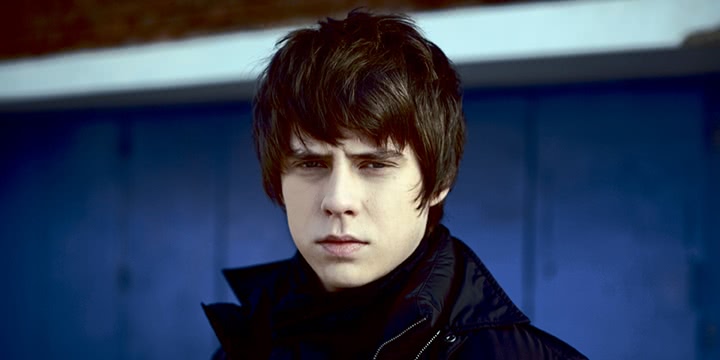Jake Bugg has never pretended to be a talker.
A particularly snarky reporter once described the experience of interviewing the young British songwriter as being akin to nagging a grumpy adolescent, and though that’s certainly an exaggeration, Bugg is fairly upfront about how close he keeps his cards to his chest.
He speaks in clipped soundbites, and each of his answers has a precise beginning, middle and end. Even when he’s vague, he’s precisely vague. He only laughs once over the course of his interview with the BRAG – the sound is as charming as it is fleeting. Otherwise he is all business, talking about his new record On My One with all the humble, ever so slightly detached pride a carpenter might use to describe a door of which they are particularly proud.
“It was fun making the record,” Bugg says. “I spent a lot of time in the studio on my own experimenting. Just trying things out. It was quite a solitary process, I would say. It was challenging as well … You have those times when you don’t know whether it’s going to come together or whether the songs are good enough. I didn’t know whether it was going to be good till the end, till it was finished. There were times when maybe my confidence was low.”
This is a surprising revelation, for nothing about On My One feels faltering or afraid. Indeed, the critics who have taken umbrage with the album so far have done so because they argue that it’s overconfident. That it’s too broad, too long and too much.
Certainly, it’s a record that switches up styles with alarming speed. It’s a deliberately mixed bag, a cracked kaleidoscope full of colour and sound that makes a phrase like ‘genre’ seem hollow and worthless.
“It’s just about the songs for me,” Bugg says. “I don’t really think about genre. I just try and have the song produced with what’s best for the song. Sometimes if I have written a bluesy song I will write it in a more rock way or strip it down. Just mess around with it in a different way.”
Though he may be undervaluing himself by suggesting he writes songs simply by ‘messing around’, Bugg’s words ring true when he explains that the album’s two oddest tracks were largely improvised. Lead single ‘Gimme The Love’ and ‘Ain’t No Rhyme’ – a fascinatingly jagged quasi-rap tune – are the least Jake Bugg songs Jake Bugg has ever written.
“On this record it was a process of exploration,” he says. “I was just kinda writing. I started with a drum beat and no idea for a song, and just started writing over the top of that. Songs like ‘Gimme The Love’ and ‘Ain’t No Rhyme’ were written [that way]. It gave me the opportunity to create something I didn’t think I would be able to come up with.”
It’s tempting to assume that this experience served as the musical equivalent of automatic writing, the free-form process that experimental poets of the past argued could reveal secrets the author themselves might not be aware of. But on the perceived ‘personal nature’ of the album, Bugg is conflicted. “Maybe [the songs are] personal?” he ventures. Then: “The songs are very personal. But they’re not all about myself.”
He leaves that negation of terms in the air for a moment, almost threatening not to explain. “I guess you could say the first album was [autobiographical] and the second album sort of [was too], and on this album some songs are, but in a different way. It’s [more] about my personal feelings, which are kind of hard to talk about sometimes.
“The first record was about where I was from, about my life up to that point,” he continues. “On My One has been more of a reflection of the last few years or so, and the feelings within myself. It was a relevant title for this record because I spent so much time on my own. I’m not having the same experience I had in my life when I was making Jake Bugg.”
It’s true that Bugg hasn’t sung about the hardships or poverty that dominated that first record in a long time. He’s swapped external troubles for internal ones, and the ghetto has been replaced by a blur of grief, glamour and girls. ‘Love, Hope And Misery’, for example, explores the pang of unrequited love, although Bugg reveals the song is about causing that particular pain rather than experiencing it.
“Quite a few people go through an experience where someone has very strong feelings for you, but you don’t have the same strong feelings for them,” he says. “You like the person but you don’t feel as strongly about them as they do. It can be kind of hard to get that across to them … without making them feel pretty bad about it.”
Bugg might have transformed from a teenager watching someone get stabbed (as on Jake Bugg’s ‘Seen It All’) into a heartbreaker trying to let a would-be lover know their affections aren’t reciprocated, but he still maintains a connection to his past self through the live experience.
“I’m not the 17-year-old who wrote ‘Two Fingers’ anymore,” he says. “It can be kind of difficult to sing those songs with the same conviction, but people want to hear them. I’m sure there’s some younger people out there who have a connection to the song. When a few of the audience know the words, it’s like they’re with you. They’re giving you some support.”
Perhaps unsurprisingly, given he has done it for so long and since he was so young, Bugg has all but developed an addiction to performing. “I always wanted to play live when I was younger,” he says. “I just thought it was cool getting to play your music in front of people and getting to travel the world while you do it. I have done it a lot over the last year. I mean, I’m not like an entertainer in any way. I don’t talk onstage, I don’t have people clapping their hands or anything like that. I just enjoy playing the songs. I need to do it.”
Entertainer or not, Bugg feeds off the response he gets from his audience – a response he says changes around the world. “In South America they can go a bit crazy, in a good way. Screaming and stuff,” he says. (For a second, it sounds like he’s laughing – but no, it’s just a stifled yawn.) “In Japan, they go silent when I’m playing and they all clap in unison afterwards. They all stop at the same time. And here in Britain there are a lot of pints getting thrown around the room. Maybe there will be in Australia too.”
Whatever response awaits Bugg upon his return to Australia remains to be seen. But it seems that even a negative reaction – one he almost certainly won’t receive – would merely trouble Bugg. It wouldn’t halt him: it doesn’t seem like anything could really stop him from writing music, or from playing it.
“I find it difficult sometimes to talk about how I feel,” he says, and there’s that laugh, finally. Brief, but unmistakably warm. “I generally keep it to myself. But if I can get it through in song, that suits me well.”
Jake Bugg’sOn My One is out now through Virgin/EMI. Catch the Bugg at the State Theatre on Tuesday July 26 with Blossoms, or at Splendour In The Grass 2016, North Byron Parklands, Friday July 22 – Sunday July 24.


































